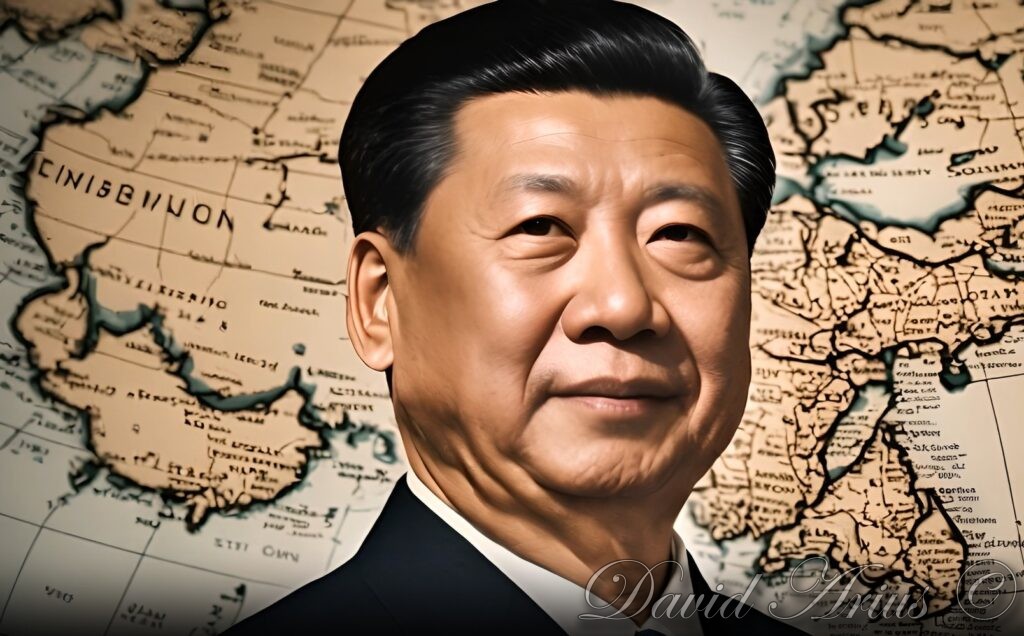What does Xi’s visit to the U.S. mean? 17.11.2023
"He who plays with fire will surely burn himself."
Xi Jinping.
Xi Jinping's visit to the U.S. signifies a highly important event. It's worth noting that Xi Jinping never does anything without purpose, and his current visit to the U.S. for the Asia-Pacific Economic Cooperation forum is no exception. Especially since Xi hasn't been to the U.S. in six years, whereas he has visited Russia four times during this period: July 3-4, 2017; September 11, 2018; June 5-7, 2019; and March 2023.
Xi's visit to the U.S. occurs amidst the uncertainty surrounding Ukraine and the conflict in the Gaza sector. These conflicts strengthen China's geopolitical positions and, at the same time, weaken those of the U.S., which is advantageous for China. The primary goal of Xi Jinping at the moment is the return of Taiwan. The official Chinese news agency "Xinhua" currently highlights this news: "Urgent: The U.S. must stop arming Taiwan - Xi Jinping."
There's a "leak" about what was approximately agreed upon in San Francisco:
"... Meanwhile, Chairman Xi, as a high-ranking White House official told journalists on condition of anonymity, assured Biden during the meeting that China is not preparing for an invasion of Taiwan and would prefer a peaceful reunification — but then he brought up the conditions under which the PRC might use force.
President Biden said at the press conference following the meeting that communication lines will be constantly open not only between Chinese and American military but also at other levels, including the leaders themselves."
Regarding Taiwan, the presidential elections on the island are scheduled for January 13, 2024. It is expected that Lai Ching-te from the Democratic Progressive Party of Taiwan will win, replacing Tsai Ing-wen from the same party.
On the same day, parliamentary elections will also take place in Taiwan. Here, the situation is unclear. In the fall of 2022, there was an electoral shift when the Democratic Progressive Party suffered a crushing defeat in local elections. The Kuomintang convincingly won.
It's worth noting that the Democratic Progressive Party stands for Taiwan's sovereignty, while the Kuomintang advocates for reunification with China.
Lai Ching-te may also face problems with being elected, as the Taiwanese opposition, represented by the Kuomintang and the Taiwan People's Party, agreed to nominate a joint candidate for the presidential election. If the Democratic Progressive Party loses power in Taiwan in January 2024, then China and Taiwan can expect peaceful reunification. But if not, then, presumably, a military one. 🙂
This is probably what was discussed in the U.S. Meanwhile, U.S. President Joe Biden described the meeting as one of the most productive negotiations and subsequently called Xi Jinping a dictator. 😀
What predictions can be made in this context? The main forecast is that China is unlikely to resolve the Taiwan issue militarily until February 2024. But if the Democratic Progressive Party wins the elections in Taiwan in January 2024, then such a scenario is quite likely within 2024. This is because there's a high probability (about 99%) that the Republicans will win the U.S. elections next year. Whether it's Donald Trump or Ron DeSantis, they heavily criticize China but believe that an agreement with Putin is possible. The outcome is obvious. (Spoiler: Putin has long been non-negotiable because he's long been out of touch. And changing him is either undesirable (by the Russian elite) or simply impossible since there is no viable opposition either inside or outside of Russia).
As for Russia, if Vladimir Putin survives until March 2024, it means that the "fear of change" in the Russian elite prevails over common sense to at least shuffle Vladimir Putin with Sergey Kiriyenko, and the current madness will continue. This, in turn, threatens Ukraine, which will struggle to withstand a prolonged conflict with Russia, as well as Moldova and Georgia, which in any case will not resist. This will weaken the positions of the U.S. in Europe and the EU itself, as well as Russia, which in turn is again advantageous for China. Against this backdrop, Xi Jinping will continue to negotiate from a position of strength, and nobody will be able to stop him until he is hit hard. And this, in any case, should be a very strong conflict.
Regarding the Middle East, if anyone needs a "big war" there, it's only Erdogan, but without Turkey's involvement in all this. This is well understood by all other participants in the process, so everyone to some extent gets their dividends from the current bloody mess with Hamas but will not exacerbate the situation. Palestinians will mostly lose, with Jews affected by Hamas suffering to a lesser extent. Everyone else has one big plus.
Any "tectonic shifts" in global politics now depend only on where something will explode again. Currently, the most dangerous region is Southeast Asia and the "pentagram": China <-> Taiwan <-> South Korea <-> North Korea <-> Japan. The second most dangerous is the Middle East and the "square": Iran <-> Israel <-> Saudi Arabia <-> Turkey. And the third is the "pair": Russia <-> Ukraine. But there's been a prolonged positional war going on there for a long time. There are also "dormant conflicts," such as: India <-> Pakistan and India <-> China. They can also "wake up". At the same time, the main changes in course can only be expected from the U.S. at the beginning of 2025. But it's still impossible to predict what they will be and who, specifically, will implement them in reality.
Tags: APEC | China | Joe Biden | Taiwan | Xi Jinping

